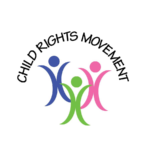The Child Rights Movement (CRM) Pakistan is a group of civil society organisations, which was established with a mission to promote and safeguard child rights in Pakistan. This study focuses on the struggle against child marriage within the family space in Pakistan.
Child marriage in Pakistan is a complex social phenomenon in terms of the considerations it raises for girls’ and young women’s physical and emotional well-being, the long-term socio-economic costs that early marriage generates for these women’s households and communities, sexual and reproductive health and rights (SRHR) and women’s agency.
For the purpose of this study the struggle is analysed across Sindh (where the law sets a new minimum age at 18), Punjab (where the law retains the minimum age at 16 but with enhanced legal sanctions), and Islamabad (the location of the federal government where the most direct backlash comes from). These regional and governmental level variations provide important insights into the differentiation within the struggle with respect to strategies for and mechanisms of change.
The struggle against child marriage has faced extensive backlash including: stigmatization and vilification through allegations of blasphemy coming from the Council of Islamic Ideology (CII); delegitimization and non-recognition of the struggle’s objectives by mainstream political parties because of their socially conservative and right-wing constituencies, and because of the threat that a regressive law could be passed as a result of the struggle’s mobilisation; and deliberate lack of bureaucratic implementation by government in obstructing the functioning of the Women’s Development Department and lack of application of the law by the police.
